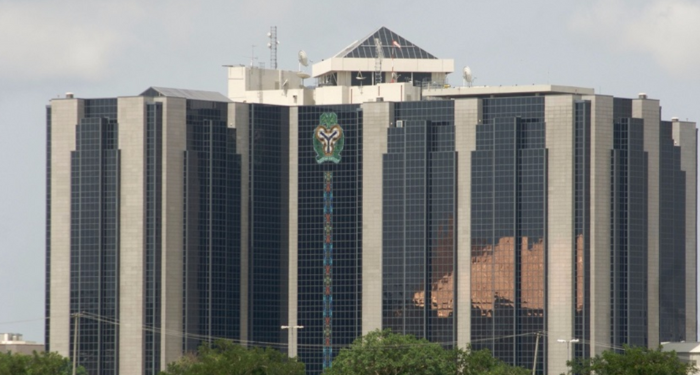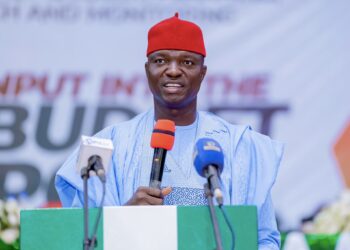The Central Bank of Nigeria’s (CBN) bid to take control of the nation’s fixed-income market has triggered regulatory controversies in Nigeria’s financial sector.
While the apex bank insists the move will enhance transparency and efficiency, analysts and market operators warn that it risks upsetting the balance between monetary policy oversight and capital market regulation.
Behind this institutional tension lies a revealing data point: Nigeria’s top-tier banks, also called the FUGAZ group (First HoldCo, UBA, GTCO, Access Corp, Zenith), collectively invested N49.152 trillion in Securities and Treasury bills placements, according to the financial statements filed with the Nigerian Exchange (NGX) Group.
Within just nine months of 2025, the FUGAZ group poured N6.948 trillion in Securities and Treasury bills, 16.5% increase over N42.204 trillion the banks had invested as of December 2024.
Nairametrics Research findings show that interest income from the investment securities stood at N4.8 trillion in nine months of 2025, compared with N3.6 trillion in the corresponding period of 2024.
Banks’ soaring earnings from investment securities
A closer look at the banks’ financial statements for the nine-month period ended September 30, 2025, reveals how dominant the fixed-income segment has become as a source of income for Nigerian lenders.
With a reported combined total of N49.152 trillion invested in securities and treasury bills, the leading banks include Access Corporation with N15.25 trillion; UBA with N13.59 trillion; Zenith Bank with N9.05 trillion; First HoldCo with N6.35 trillion; and GTCO with N4.91 trillion. These investments generated returns as follows:
- Access: N1.3 trillion
- Zenith: N1.14 trillion
- UBA: N1.03 trillion
- FBN HoldCo: N720.15 billion
- GTCO: N570.234 billion
These figures underscore how much banks rely on sovereign debt instruments and CBN-backed placements, rather than riskier private-sector lending, to generate returns.
The trend reflects a broader shift in banking behavior, from credit-driven growth toward passive income through government securities, driven by high yields and macroeconomic uncertainty
Loan-to-Deposit Ratios reveal conservative lending
Loans-to-deposit data from the same banks show a deliberate retreat from aggressive lending despite surging deposits.
- Zenith Bank’s loans and advances rose to N9.37 trillion, but its loan-to-deposit ratio dropped from 43% to 40%, showing risk aversion amid currency volatility and credit risk concerns.
- Access Corporation, meanwhile, expanded loans by nearly 20% to N15.64 trillion, yet its ratio remained static at 41.2%.
- UBA’s lending portfolio grew marginally to N7.49 trillion, with the loan-to-deposit ratio slipping from 28.7% to 28.2%, even as deposits climbed 7.7% to N26.54 trillion.
- GTCO increased lending by 16.12% from N2.79 trillion in December 2024 to N3.24 trillion in September 2025, but the Group’s loan to deposit ratio grew by only 3.72% despite a 16.0% growth in customer deposits in nine months to N12.06 trillion, up from N10.40 trillion in same period in 2024.
- In contrast, First HoldCo increased lending by 11.53%, to N13.46 trillion, raising its loan-to-deposit ratio from 60% to 68%. This divergence suggests that while First HoldCo is pushing into credit markets, peers prefer the security of government debts at varying degrees.
CBN’s plan
In a recent circular issued late September 2025, the CBN announced plans to migrate fixed income trading and settlement functions from the FMDQ Securities Exchange — regulated by the Securities and Exchange Commission (SEC) — to its own Real-Time Gross Settlement (RTGS) and Scripless Securities Settlement System (S4). This policy shift is expected to kick off this November, barring last-minute reversals.
The move would effectively make the CBN both operator and regulator of Nigeria’s fixed-income market infrastructure, consolidating control of government bond and Treasury bill issuances under one roof.
Supporters say the reform could enhance transparency, reduce underreporting, and democratise access by ending what many describe as FMDQ’s monopoly over the market. Critics, however, warn that the plan may constitute regulatory overreach and commercialisation in violation of the CBN Act and the Investments and Securities Act (ISA) 2025.
Regulatory tensions and legal loopholes
Analysts and legal experts argue that while the CBN Act allows the Bank to promote payment and settlement systems, it does not authorise it to operate a securities trading venue.
The ISA 2025 gives exclusive regulatory authority over securities markets and trading platforms to the SEC, not the central bank, analysts argue.
Dr. Akin Olaniyan, CEO of Lagos-based Charterhouse Limited, said, “If CBN implements its planned takeover without SEC oversight, the move could create dual regulation, confuse market participants, and undermine confidence in Nigeria’s market governance framework.”
Critics like pioneer Registrar of the Institute of Capital Markets Registrars (ICMR), Dr. Walker Ogogo, also noted that “the CBN’s involvement in trading, settlement, and monetary policy could create conflicts of interest and send wrong signal to foreign investors,” especially since the CBN already owns about 16% equity in FMDQ, a structure originally designed to promote collaboration rather than competition.
Market reactions
Market operators remain divided. David Adonri, CEO of Highcap Securities Limited, agrees that the CBN is statutorily empowered to manage the primary market for government securities but not the secondary market, which falls under SEC’s jurisdiction.
- According to Adonri, the CBN’s new trading platform will likely focus on primary market activities — auctions for Treasury Bills and Federal Government bonds — while secondary market trading should remain under FMDQ and the NGX.
He suggested that dissatisfaction with FMDQ’s trade transparency and reporting standards may have triggered the CBN’s move, saying, “The CBN appears no longer comfortable with how FMDQ executes its trades. This is about gaining visibility and control.”
- Similarly, Tajudeen Olayinka, CEO of Wyoming Capital and Securities Limited, views the reform as a step toward greater data integrity and accountability. He said the CBN could create an interface between its platform and existing exchanges, ensuring market liquidity while improving oversight.
“What they are doing may even bring more transparency because currently, the data from FMDQ are not well captured or are underreported,” Olayinka observed.
Currently, FMDQ has exclusive access to the CBN’s S4 system, making it the dominant platform for trading and settlement of government securities.
Analysts believe that once the CBN launches its proprietary system, both FMDQ and NGX will gain equal access to S4, thereby “democratising” the fixed income space.
“The development could remove the undue advantage previously enjoyed by FMDQ,” Adonri said, “allowing for better price discovery and wider investor participation.”
The CBN’s reform, though potentially transformative, tests the limits of its legal authority and the independence of Nigeria’s capital market institutions. Its success will depend on transparency, collaboration, and regulatory alignment with the SEC.























